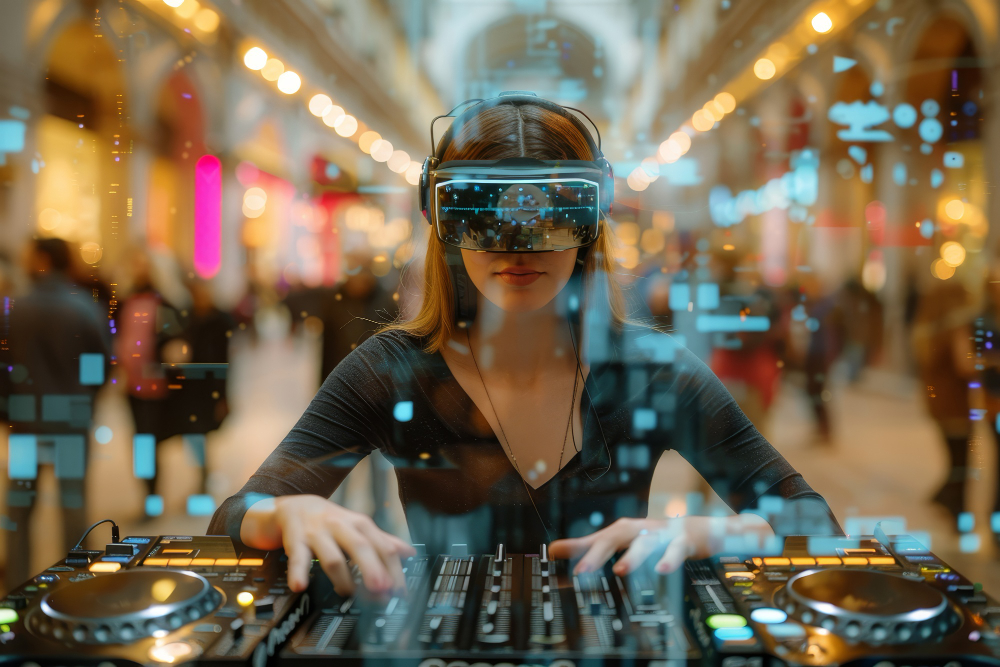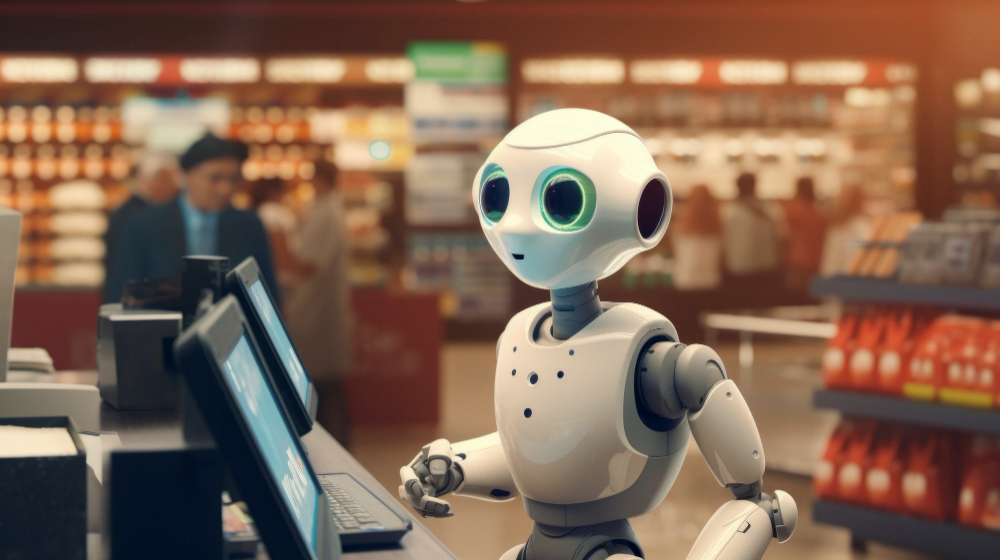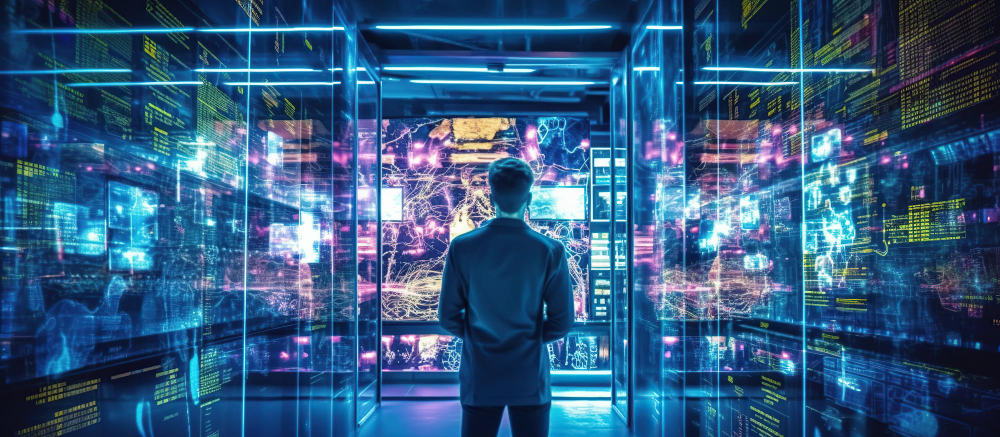The retail industry is evolving rapidly, driven by technological advancements, changing consumer behaviors, and innovative business models. As we look ahead to 2025 and beyond, several key trends and technologies are set to shape the future of retail. From personalized shopping experiences to the rise of e-commerce, here’s what you can expect in the future of retail.
1. Personalized Shopping Experiences
Personalization will continue to be a major trend in the retail industry. Retailers will leverage data analytics and artificial intelligence (AI) to provide highly personalized shopping experiences tailored to individual preferences and behaviors.
- AI-Powered Recommendations: Retailers will use AI to analyze customer data and provide personalized product recommendations, enhancing the shopping experience.
- Customer Insights: Advanced analytics will enable retailers to gain deeper insights into customer preferences, enabling them to tailor marketing campaigns and product offerings.
2. Omnichannel Retailing
The future of retail will be characterized by seamless integration between online and offline channels. Omnichannel retailing will provide a unified shopping experience, allowing customers to switch between different channels effortlessly.
- Integrated Systems: Retailers will invest in integrated systems that connect online stores, physical stores, and mobile apps, providing a consistent experience across all channels.
- Flexible Fulfillment Options: Customers will have the flexibility to choose from various fulfillment options, including in-store pickup, curbside pickup, and home delivery.
3. Augmented Reality (AR) and Virtual Reality (VR)
AR and VR technologies will play a significant role in transforming the retail experience. These immersive technologies will enhance product visualization and enable customers to try before they buy.
- Virtual Try-Ons: AR will allow customers to virtually try on clothing, accessories, and cosmetics, helping them make more informed purchase decisions.
- Virtual Stores: VR will enable the creation of virtual stores, where customers can explore products in a virtual environment from the comfort of their homes.
4. Sustainable and Ethical Practices
Sustainability and ethical practices will become increasingly important in the retail industry. Consumers are becoming more conscious of the environmental and social impact of their purchases, driving demand for sustainable and ethical products.
- Eco-Friendly Products: Retailers will offer more eco-friendly products made from sustainable materials and produced using ethical practices.
- Transparency: Retailers will provide greater transparency about their supply chains, allowing customers to make informed choices about the products they buy.
5. Automation and Robotics
Automation and robotics will streamline retail operations, improving efficiency and reducing costs. These technologies will be used in various aspects of retail, from inventory management to customer service.
- Automated Warehouses: Retailers will use automated warehouses with robotic systems to handle inventory, reducing labor costs and improving accuracy.
- Robotic Assistants: In-store robotic assistants will help customers find products, answer questions, and provide personalized recommendations.
6. Blockchain Technology
Blockchain technology will revolutionize the retail industry by enhancing transparency, security, and efficiency. This technology will be used to improve supply chain management and ensure product authenticity.
- Supply Chain Transparency: Blockchain will provide a secure and transparent way to track products from production to sale, reducing fraud and ensuring product authenticity.
- Loyalty Programs: Blockchain will enable the creation of more secure and efficient loyalty programs, providing customers with a seamless and rewarding experience.
7. Voice Commerce
Voice commerce will become a significant trend in the retail industry, driven by the growing popularity of voice-activated devices like smart speakers and virtual assistants.
- Voice-Activated Shopping: Customers will use voice commands to search for products, make purchases, and track orders, providing a convenient and hands-free shopping experience.
- Personalized Voice Assistants: Retailers will develop personalized voice assistants that can provide tailored recommendations and assist with various shopping tasks.
8. Data Privacy and Security
As retailers collect and analyze more customer data, ensuring data privacy and security will be paramount. Retailers will need to invest in robust data protection measures to gain and maintain customer trust.
- Data Protection Regulations: Retailers will need to comply with data protection regulations such as GDPR and CCPA to ensure customer data is handled securely.
- Cybersecurity Measures: Enhanced cybersecurity measures will be implemented to protect customer data from breaches and cyberattacks.
9. Social Commerce
Social media platforms will play an increasingly important role in the retail industry. Social commerce will enable customers to shop directly through social media channels, providing a seamless and engaging shopping experience.
- Shoppable Posts: Retailers will leverage shoppable posts on platforms like Instagram and Facebook to allow customers to purchase products directly from their social media feeds.
- Influencer Collaborations: Collaborations with influencers will continue to be a powerful marketing strategy, driving brand awareness and sales through authentic endorsements.
10. Subscription Services
Subscription services will become more prevalent in the retail industry, offering customers convenience and personalized product deliveries.
- Curated Subscriptions: Retailers will offer curated subscription boxes tailored to individual preferences, providing a personalized and convenient shopping experience.
- Membership Models: Membership models will provide customers with exclusive benefits, such as discounts, early access to products, and free shipping.
Conclusion
The future of retail is set to be dynamic and exciting, driven by technological advancements and changing consumer expectations. By embracing these trends and innovations, retailers can create engaging, personalized, and sustainable shopping experiences that meet the needs of modern consumers. As we look ahead to 2025 and beyond, the retail industry will continue to evolve, offering new opportunities for growth and innovation.
Stay ahead of the curve by keeping up with the latest retail trends and innovations. Subscribe to our newsletter for more insights and updates on the future of retail!
References



Leave a comment